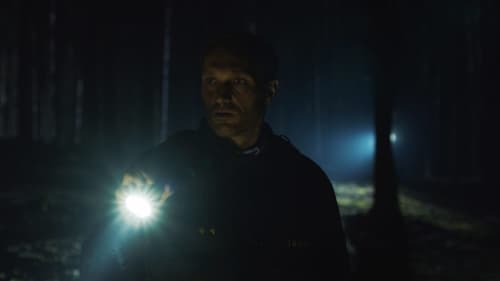
Director of Photography
It’s 2041 and the gaps in social and economic inequality have left the world on the brink. A breakthrough in science has given humanity the ability to bring victims of a violent crime back to life by backing up their brain every 2 days. This allows an ambitious, young detective the opportunity to solve a case of a murdered couple when the restoration team is able to bring one of them back.

Gaffer
Uma Vida - A História de Nicholas Winton (Anthony Hopkins) mostra o extraordinário e humanitário Nicholas Witon que, em 1938, durante a Segunda Guerra Mundial, foi visitar Praga e se horrorizou com a situação em que as famílias ali viviam por conta de forte influência da Alemanha nazista. Compadecido com a situação, Nicholas junto com um grupo de apoio, conseguiu ajudar, principalmente crianças, a fugirem do Holocausto e irem para a Inglaterra antes das fronteiras serem fechadas. Entretanto, anos depois, Nicholas Winton fica atormentado com o sentimento de culpa pensando naqueles que ele não conseguiu resgatar. Somente quando ele reencontra com uma sobrevivente que ele socorreu é que ele consegue se livrar do peso da culpa.

Director of Photography
During a random check, the commander of the Czech Customs Unit notices that there are immigrants in the back of a van. In the turmoil that followed, a minor is injured while trying to escape into the forest. The officers scatter the woods to look for the boy who managed to escape. Their aim is to find him and cover up the event. When the child's father refuses to cooperate, the incident becomes insurmountable and the officers start to mistreat the refugees. It is a fairly harsh short film about human emotions and views against immigrants.

Camera Operator
Liesel Landauer e Hana são ligadas por uma longa amizade e uma casa excepcional, construída pelo arquiteto Von Abt para Liesel e seu marido Viktor. Quando as duas começam a se apaixonar, terão que quebrar diversas barreiras para vivenciar esse amor.

Cinematography
This episode from the Czech Journal series examines how a military spirit is slowly returning to our society. Attempts to renew military training or compulsory military service and in general to prepare the nation for the next big war go hand in hand with society’s fear of the Russians, the Muslims, or whatever other “enemies”. This observational flight over the machine gun nest of Czech militarism becomes a grotesque, unsettling military parade. It can be considered not only to be a message about how easily people allow themselves to be manipulated into a state of paranoia by the media, but also a warning against the possibility that extremism will become a part of the regular school curriculum.




